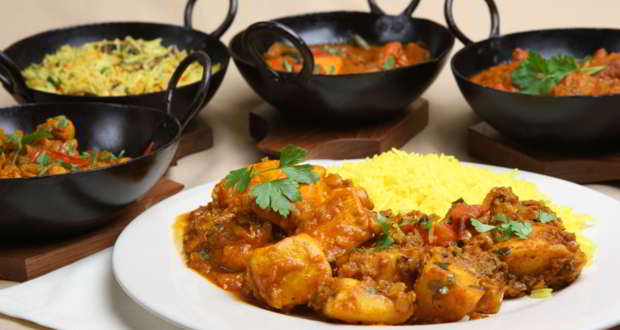Indian food menus are becoming more popular the world over. Indian recipes are known for the healthy ingredients the use of which are based on ancient texts, knowledge passed on from one generation to another. What is more important is that these recipes are now being improvised to suit modern needs.
In most Indian food menus, the food item has a pair of ingredients – one working to compensate the side effects of the other.
For example, dosa is an Indian recipe that is a complete nutritious meal in itself. One dosa can provide your body with most of the required vitamins and nutrients. Hence if you are on a weight loss diet, you will be able to have a filling, complete, nutritious meal once and will not feed the urge to eat anything between meals.
The idea is to get your stomach and tongue feel the satisfaction of a delicious and filling meal that it does not crave for anything in between meals.
Ingredients Complimentary and Counter Active
In Indian dosa we use lentils called “urad dal”. This white lentil is rich in protein, very healthy. White Dal is good for improving hemoglobin count. In India herbal doctors prescribe one dosa per day for people suffering from anemia.
So urad dal has all the good qualities that we need. But nothing is perfect in this world. Good healthy ingredients do have a part that is not good for us. So does urad dal. Eating a lot of urad dal can produce ‘stomach gas’. So to deactivate this component of urad dal, Indians use asafoetida called ‘Hing’. By using a pinch of ‘hing’ in the dosa batter the bad effect of urad dal is removed and we can benefit from the nutritious quality of urad dal.
Another ingredient added to dal to overcome its side effect is cooking soda. Cooking soda again is good for digestion and prevents ‘stomach gas’. A third ingredient used in dosa batter is cumin seeds.
What we are doing here is to benefit from a nutritious meal and have a three pronged attack over its side effects. The three ingredients, asafoetida, cooking soda and cumin seeds, which are used for overcoming the side effects of dosa, have healthy nutrients in themselves. So we have removed the bad effects and added more nutritional value to the meal.
This is just one example of the many, many ways Indian food lovers have perfected the art of eating healthy nutritious meal. This knowledge is passed on from one generation to the next.
Modern Indians do not want to spend a lot of time in the kitchen. Necessity is the mother of invention. Instant food items that retain the healthy, nutritious quality based on the ancient wisdom of Indians are coming into the food market.
These healthy recipes have such ingredients that work against the bad effects of each other as well as compliment each other’s nutritional value.






